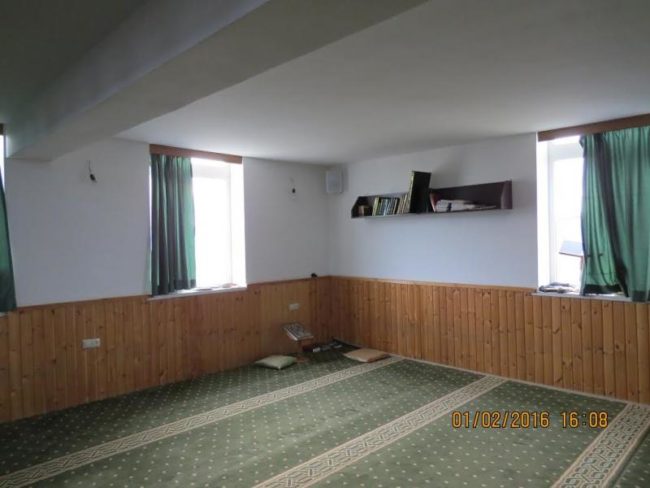
 Daghestani police have closed a mosque in Shamkhal several kilometres north-west of the Daghestani capital of Makhachkala. Local supporters of the mosque intend to fight the authorities’ decision.
Daghestani police have closed a mosque in Shamkhal several kilometres north-west of the Daghestani capital of Makhachkala. Local supporters of the mosque intend to fight the authorities’ decision.
Several members of the mosque told OC Media that they have frequently had to defend it from the local police. In order to avoid problems with the authorities, members of the community registered themselves as ‘Religious Group Muslim’ at the Ministry of Justice. This did not help, and on 16 May, police closed the mosque.
‘We have a new chief of police in the village. He doesn’t even want to talk to us. He says: “There should be no questions. If you don’t shut [the mosque] down, I will send my army and we’ll close it ourselves”. In order to avoid conflict, we closed the mosque ourselves and handed them the keys’, Gamzat Gamzatov, the leader of Religious Group Muslim told OC Media.
The mosque in Shamkhal is considered to be Salafi; there are two other mosques in the village. According to Gamzatov, these mosques aren’t registered at the Ministry of Justice, yet they don’t have any problems with the police.
‘Our mosque is the only one in the village which is registered with the Ministry of Justice. We explain to them that we have all the documents, they are in order, no-one has any problems with us. But they’re not going to reopen [the mosque] yet’, Gamzat Gamzatov said.
Members of the mosque are currently praying at home, and travelling to Makhachkala for Friday prayers.
The community plans to file a complaint with the Prosecutor’s Office, and to attempt to reopen the mosque through the courts. Oleg Orlov, head of the Memorial Human Rights Centre, a Russian rights group, told OC Media that they are ready to provide assistance to the mosque.
Gamzatov told OC Media that local police had shown an interest in the mosque even before it was closed.
‘They kept coming and parking cars so that the mosque was surrounded. Many guys were taken away, they took their fingerprints, ran DNA tests from their blood, and put their names on the profuchyot (preventive supervision list)’, Gamzatov said.
According to him, there are more than 300 men in the village who are on the preventive supervision list at the Ministry of Internal Affairs.
[For more information on how Daghestanis struggle with preventive supervision lists, read: The courts are the last hope for Daghestanis on Russia’s ‘preventive supervision list’]




 23 May 2017
23 May 2017


